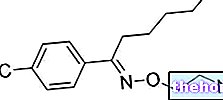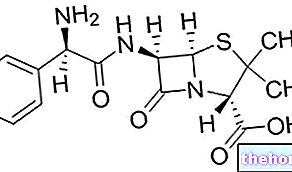OPTINATE ® is a risedronate sodium drug.
THERAPEUTIC GROUP: Drugs affecting bone metabolism - Bisphosphonates

Indications OPTINATE ® - Risedronic acid
OPTINATE ® is indicated for the prevention and treatment of osteoporosis secondary to menopause and cortisone therapy.
Mechanism of action OPTINATE ® - Risedronic acid
Risedronic acid is a bisphosphonate particularly used in the clinical setting in the prevention and treatment of postmenopausal osteoporosis and major complications such as vertebral fractures.
Its therapeutic action is due to the ability, once taken orally and absorbed in the intestine despite the very poor bioavailability, to concentrate in the sites of bone resorption, and probably inhibit the activity of osteoclasts and the related osteolysis process.
This selective action, which spares the osteoblasts and the process of neodeposition of the bone matrix, therefore allows to increase the bone mineral density, reducing the risk of pathological fractures.
Studies carried out and clinical efficacy
1. BONE MINERAL DENSITY AND RISK OF FRACTURES
J Bone Miner Res. 2011 Jul; 26: 1662-9. doi: 10.1002 / jbmr.342.
Bone turnover markers and bone mineral density response with risedronate therapy: relationship with fracture risk and patient adherence.
Eastell R, Vrijens B, Cahall DL, Ringe JD, Garnero P, Watts NB.
Interesting study that demonstrates how the increase in bone turnover markers and bone mineral density can best reflect the reduction in the risk of bone fractures associated with treatment with risedronic acid.
2. MOLECULAR MECHANISMS OF ACTION
Neoplasm. 2010 Jul; 12: 571-8.
How do bisphosphonates inhibit bone metastasis in vivo?
Fournier PG, Stresing V, Ebetino FH, Clézardin P.
Experimental study that seeks to characterize the molecular mechanisms underlying the osteoprotective effect of bisphosphonates. The selective action on the activity of osteoclasts seems to be the main biological feature to date.
3. RISEDRONIC ACID AND PHARMACOTHERAPY OF PROSTATIC CARCINOMA
BJU Int. 2010 Nov; 106: 1473-6.
Risedronate prevents early bone loss and increased bone turnover in the first 6 months of luteinizing hormone-releasing hormone-agonist therapy for prostate cancer.
Taxel P, Dowsett R, Richter L, Fall P, Klepinger A, Albertsen P.
Treatment with risedronate during the first 6 months of pharmacological treatment of prostate cancer may prevent the bone loss that is observed following the molecular action of luteinizing hormone-releasing hormone receptor agonists.
Method of use and dosage
OPTINATE ®
Risedronate sodium 5, 35 and 75 mg tablets:
the dosing schedule for the intake of risedronic acid strictly depends on the type of dosage used, being essentially able to opt for the intake of one 5 mg tablet per day, one 35 mg tablet per week or one 75 mg tablet taken consecutively for 2 days a month.
Regardless of the frequency of administration, it is important to remember to take the drug on an empty stomach, avoiding the ingestion of food and liquids for the next 30 minutes, in order to optimize the intestinal absorption of the active ingredient, and to maintain an upright position for the same. time in order to avoid the appearance of side effects on the esophageal mucosa.
OPTINATE ® warnings - Risedronic acid
Treatment with risedronic acid must necessarily be supervised by an expert physician, in order to properly evaluate the therapeutic efficacy and the possible occurrence of side effects potentially dangerous for the patient's health.
It is useful to remember how the data in the literature show an efficacy of this active principle in the prevention of vertebral fractures associated with osteoporosis, while the incidence of femoral ones is unfortunately unchanged.
Before or during treatment with OPTINATE ® it may be indicated to supplement with calcium and vitamin D in order to preserve the correct blood concentrations of this element or to correct them if they are compromised.
The increased risk of osteonecrosis of the jaw in patients receiving OPTINATE ® should be seriously considered before any dental treatment and major surgery.
OPTINATE ® contains lactose therefore its use is not recommended in patients with lactose intolerance, lactase enzyme deficiency or glucose-galactose malabsorption.
PREGNANCY AND BREASTFEEDING
The intake of OPTINATE ® is contraindicated during pregnancy and breastfeeding given the presence in the literature of experimental studies that demonstrate the potential toxic effects of risedronic acid on the health of the fetus.
Interactions
There are currently no studies able to demonstrate the presence of active ingredients capable of interfering with the normal pharmacokinetic and pharmacodynamic properties of risedronic acid.
However, it is important to reiterate how the simultaneous ingestion of food or drinks, especially if characterized by a high content of polycationic elements, could significantly reduce the intestinal absorption of risedronate sodium.
Contraindications OPTINATE ® - Risedronic acid
OPTINATE ® is contraindicated in patients suffering from hypocalcemia, reduced renal function and hypersensitivity to the active substance or to one of its excipients.
Undesirable Effects - Side Effects
The intake of OPTINATE ® could cause the appearance of side effects such as headache, constipation, dyspepsia, nausea, abdominal pain, diarrhea, musculoskeletal pain, gastro-oesophageal irritation and dermatological hypersensitivity reactions.
In most cases, the aforementioned adverse reactions have proved to be of no particular clinical interest and transient, so much so as to require suspension of therapy only in exceptional cases.
Note
OPTINATE ® can only be sold under strict medical prescription
The information on OPTINATE ® - Risedronic acid published on this page may be out of date or incomplete. For a correct use of this information, see the Disclaimer and useful information page.




























